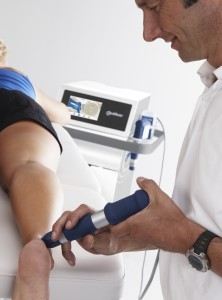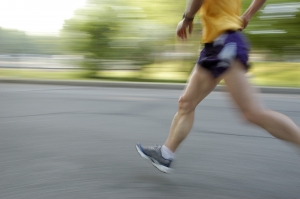What is Achilles Tendinopathy?
Also known as Achilles Tendonitis or Achilles Tendinosis.
Achilles tendinopathy is an injury affecting the long tendon that runs down the back of your leg from your calf to your heel. It can become stiff, painful and thickened affecting how you move.
Who gets it?
- More common in middle age people
- It rarely affects your children or adolescents
- It particularly affects people who do activates that involve running or jumping
Why do people get it?
There are many factors that can cause Achilles tendinopathy but essentially, it’s the inability of the tendon to adapt to the strain being placed upon it which leads to microdamage with the tendon fibres. The tendon then attempts to heal in response to the strain.
- Tight and weak calf muscles
- Poor lower limb biomechanics
- Joint stiffness in ankles
- Poor training techniques – or a recent change
- Poor footwear or a recent change in footwear
- Higher than average body weight
- Diabetes
What are the symptoms?
The symptoms of Achillies tendinopathy vary between individuals and severity but can include:
- Increasing pain and stiffness at the back of your ankle
- Sometimes feeling of grating or ‘crepitus’
- Tender to touch or a thickened area of the tendon
- Pain may come and go but usually worse in the morning, after exercise or after rest where it may feel stiff but feels better once you start moving
- Reduce physical activity due to pain
What else could it be?
Sometimes the diagnosis is not straight forwards and it could be something else:
- You may have torn or strained your Achilles – often associated with a pop or tear feeling
- In your children or adolescents it could be Severs Disease
How can I help myself?
POLICE NOT PRICE – We’ve lost the ‘Rest’ and added OL!
P– Protect the area – If the pain is severe you may need to avoid putting weight on that leg
OL– Optimal Loading – active rest is generally better than total rest so do what you can that doesn’t aggravate your symptoms. If everything hurts, it’s probably best to get things looked at sooner rather than later.
I – Ice the area for pain relief
C – Compression – Generally not of much help in this condition
E – Elevation – Take the load off your feet can help the symptoms calm down.
If the symptoms persist for more than a week and activities such as normal walking or going up and down stairs is especially painful or limited it’s probably time to see some professional advice from your Physiotherapist or GP.
How can The Physio Clinic Bristol help me?
At the Physio Clinic Bristol, our therapists will help answer all your questions and guide you on your recovery back to doing the important things in life and the activities you love.
Our modern and spacious treatment facility and friendly staff use the latest in treatment techniques such as Shockwave, massage and acupuncture, from helping you cope with the acute injury, pain and physical problems in the early stages, right through the rehabilitation process and beyond to make sure you achieve the outcome you deserve.
In conclusion, if you suspect that you have an Achilles problem, we would suggest booking in with a member of our highly skilled Physiotherapy team .
If you would like more information on Physiotherapy, please visit:


